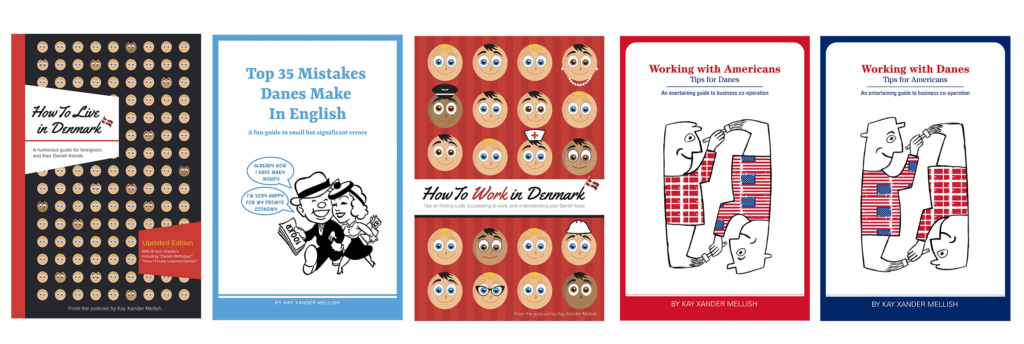In the era of online applications, face-to-face networking, and LinkedIn profiles, the Danish cover letter is a bit of a lost art.
Probably your future employer will ‘meet’ you via one of these other channels before they ever read the letter that is supposedly introducing you.
But it’s still worth writing, because it’s a chance to set the experience on your cv in the context of the job on offer.
For example, I met a woman who had spent her entire career in the telecom industry – and really wanted to try something else. Although her cv showed one telecom job after another, her cover letter was a great place to explain why she was applying for a job in a different industry and how her experience could be useful there.
A good cover letter is particularly useful if you’re a new arrival in Denmark, a new graduate, or going for a job that isn’t an obvious fit with what you’ve already done.
Keep it short
Your letter should be short , direct, and with no mistakes in grammar and spelling. Even if your future job is not in the communications industry, a flawless cover letter gives you a chance to show you care about thoroughness and care about quality, both of which are points of pride in Denmark. (I recommend fiverr.com, where native speakers will proofread your English or Danish for as little as US$5)
Three short paragraphs should be enough to describe who you are and why you want this particular job with this particular company.
If you’re newly arrived in Denmark, you can also use your cover letter to explain why you chose this place over others. Danes love their country and are proud of it; it certainly won’t hurt to show that you like it too, and are not just an opportunist who will take a job anywhere if it offers a good paycheck.
The traditional Danish letter style dispenses with annoying salutations like “Dear Sirs/Madams”. Instead, it has a subject line on top, a bit like an email. You can use this to your advantage. A line like Skilled juggler with 2 decades of experience in circus acrobatics is certainly a more eye-catching start to a letter than the old-fashioned “To Whom it May Concern.”
But first…
Let’s scroll back for a minute, though. As I said, the cover letter is probably not your first encounter with an employer.
Many Danish job ads contain the phone number of the hiring manager, who is often the exact person you will be working for if you get the job.
This is an opportunity for you to call, introduce yourself, and ask an intelligent question about the job. (Yeah, an intelligent question – nothing that’s already in the job description or something you can find out on the company’s website.)
Please, please find a quiet room where your future employer can hear what you are saying – I have had people call me from train stations with trains whizzing by, or from coffee shops with Beyoncé’s latest hit pumping in the background.
Approach the hiring manager along these lines: “This is (your name here). I understand that you’re the hiring manager for the (job name), and I’m interested, but I have a couple of questions. Is now a good time?”
Assuming the hiring manager is not halfway through her lunch or on her a way to a meeting, you can then take 5-10 minutes of her time with a few questions that are directly relevant to the position, such as the team structure, travel requirements or management responsibilities.
Please ask about things that relate to the work at hand, not whether you can get off early on Fridays because you play tennis or if its OK that you already have vacation planned for the company’s busiest season.
If the answers (and the boss) are to your liking, you can reference the conversation in the first paragraph of your cover letter. Just to make sure the contact is fresh in her memory, I recommend sending your application within 24 hours of having spoken to the hiring manager.
But even before that…
Before your cover letter, and before you approach a hiring manager, you should have your LinkedIn profile in order. When it comes to social media, Danes use Facebook mostly for social purposes and are indifferent about Twitter, but they love LinkedIn.
Anyone who is serious about doing business and finding a job in Denmark should polish his or her LinkedIn profile like a diamond.
An excellent business profile photo, as we discussed in Job Hunting in Denmark Part 2: Putting together your Danish cv is a must. Your job title should be packed full of the kind of search words recruiters will type in when they’re looking for someone like you – the more specific, the better.
(I get so mad when I see someone just write “Engineer.” No, you’re an Environmental Engineer specializing in Wastewater Purification.)
When it comes to the jobs you’ve had, don’t just list your title and dates of employment. Go into details about the projects you’ve worked on and the products, materials and teams you’ve worked with. Tell a little story about your time on the job and what you learned there. Unlike a cv, LinkedIn profiles don’t have to be a dry collection of bullet points.
LinkedIn even has a great ‘portfolio’ feature to put up documentation of some of the work you’ve already done – photos, newspaper articles, videos, short project summaries, whatever you’ve got.
It helps make your work experience come alive and seem more concrete, particularly if most of it consists of work done outside of Denmark.
Writing updates helps establish your name
LinkedIn also allows you to post short Facebook-style updates, which you can use to share information about what’s going on in your field.
These posts put your name in the news feeds of all the great new industry contacts you built up during Looking for jobs in Denmark Part 1: Fine-tuning your approach to the Danish job market. They keep your name fresh in their minds so they remember you when a job needs to be filled. If you’re a gifted writer, you can even do longer LinkedIn blog post about some topic of interest in your business. This helps establish you as a local ‘expert.’
There’s a good chance your future employer will find you via your LinkedIn profile. Even if he doesn’t, he’ll probably look at your profile after he reviews your cv and cover letter.
A great profile could prompt him to call you for a meeting, which is what we’ll discuss in our posting on The Danish Job Interview.
Two magic words
When I give presentations to job-hunters in Denmark, I tell them there are two words you can add to your cover letter that will virtually guarantee that it will be carefully read.
What are those two words?
The name of someone you know who already works at the company.
Of course, you should only use a current employee’s name with his or her permission, and ask each time you use it. There’s always the chance that your contact and this particular hiring manager may be bitter enemies, or that a company is so vast (say, Novo Nordisk) that a recommendation from a scientist won’t have much impact on the hiring of an accountant.
But if your contact is the same or a similar department, knows the company’s culture and priorities, and thinks you’re a good fit, the hiring manager will at least take the time to look through your application and see if she agrees.
At the very least, she’ll feel she might have to explain to her co-worker why she doesn’t agree. Denmark is a little job market, so people are careful not to offend their business contacts.
That means your letter and cv will get a little extra attention.
Buy Kay’s books about Denmark on Amazon, Saxo, Google Books, Apple Books, Barnes & Noble Nook, or via our webshop.
Image mashup copyright Kay Xander Mellish 2025
Read more:
Decoding your Danish pay slip and understanding your Danish taxes
How to handle a Danish business meeting
What to wear to work in Denmark: Quiet colors, quality cut and fabric
Your first day at work in Denmark: Handshakes, passwords, and several people named Mette
Trailing spouses and working in Denmark
Motivating Danish employers: Tips for foreign managers
Networking in Denmark: 5 useful tips for making Danish business contacts
Secrets of socializing with your Danish colleagues
The Danish art of taking time off
Your free daily banana and five weeks off: Job benefits in Denmark
Why job titles aren’t that important in Denmark
The Danish job interview
Job hunting in Denmark: Putting together your Danish CV
Fine-tuning your approach to the Danish job market
Finding a job in Denmark: Some tips from my experience
Is joining a union a waste of money? And what is the difference between a union and an A-kasse?
Will I ever be promoted? Plus, how to leverage your annual review
Taking sick days in Denmark, plus how to deal with stress





